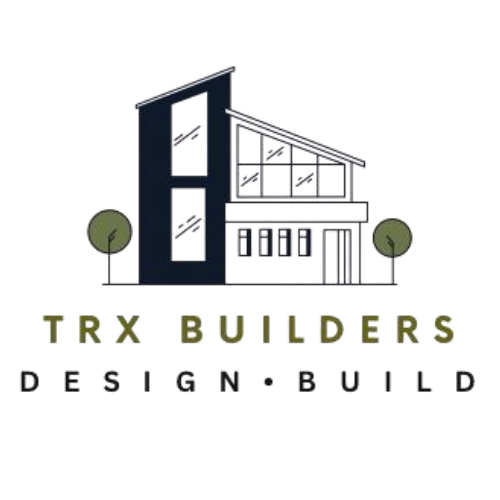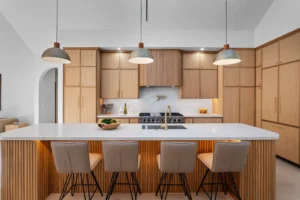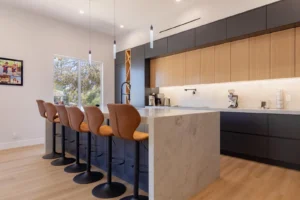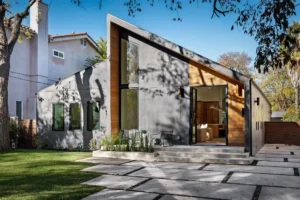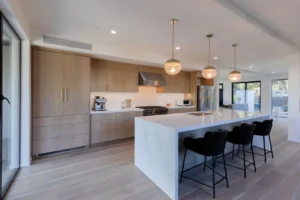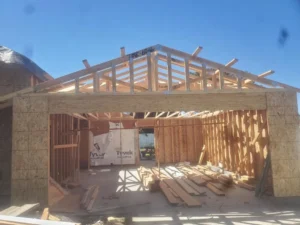Bathroom remodeling is one of the most popular home improvement projects, and for good reason. A remodeled bathroom can significantly enhance your home’s overall look, functionality, and value. Whether you’re upgrading outdated fixtures, adding modern features, or creating a spa-like retreat, the investment in your bathroom pays off in comfort, style, and long-term home equity.
But before diving into a bathroom remodel, one of the most common questions homeowners ask is, “How much does bathroom remodeling cost?” The answer, like any home improvement project, isn’t straightforward. The cost of a bathroom remodel can vary widely depending on a number of factors such as size, design, materials, and location.
Let’s break down the costs involved and help you understand what to expect when planning your bathroom remodel.
What Affects the Cost of Bathroom Remodeling?
The cost of a bathroom remodel can fluctuate depending on various factors. While it’s difficult to give an exact number, we can break down the different aspects that can influence your budget:
1. Size of the Bathroom
The size of your bathroom is perhaps the most obvious factor affecting the overall cost of the remodel. A small half-bathroom (powder room) will naturally cost less to remodel than a large master bathroom. The larger the space, the more materials, labor, and time required for the project. Typically, smaller bathrooms can range from 40 to 70 square feet, while larger bathrooms can be upwards of 100 square feet.
2. Scope of the Remodel
The extent of the remodel is another key factor. Are you just updating fixtures like faucets and mirrors, or are you gutting the entire room and starting from scratch? A full remodel (which includes replacing the tub, shower, floors, plumbing, and electrical) will, of course, cost more than just installing new tiles or replacing a vanity.
Here’s a quick breakdown of different levels of bathroom remodeling:
- Minor Remodel: Cosmetic upgrades, such as painting, new fixtures, lighting, and flooring.
- Mid-Range Remodel: Includes replacing most fixtures and upgrading finishes.
- High-End Remodel: Complete overhaul with luxury materials, custom cabinetry, and high-end fixtures.
3. Quality of Materials
The materials you choose will have a big impact on the final cost of your bathroom remodel. Higher-end materials like marble countertops, custom cabinetry, and premium shower tiles can add significantly to your budget. However, you can still achieve a luxurious look with more budget-friendly materials, such as porcelain tiles or laminate countertops.
Here are a few material considerations:
- Tiles: Ceramic or porcelain tiles are more affordable, while natural stone or custom tiles can be much more expensive.
- Cabinetry: Stock or semi-custom cabinets are more budget-friendly, while custom-built cabinetry can raise the cost significantly.
- Fixtures: Faucets, showerheads, and toilets come in a wide range of prices, with luxury brands costing significantly more.
4. Labor Costs
Labor costs make up a large portion of the total cost of a bathroom remodel. The complexity of your project and the skill required will determine how much you pay for professional labor. Hiring experienced professionals—such as plumbers, electricians, and carpenters—will ensure that your remodel is done right and up to code. The average hourly rate for labor in bathroom remodeling can vary depending on location and experience, but it’s safe to estimate around $50–$150 per hour for skilled labor.
In addition, the more complex your remodel, the more labor hours will be required. A full gut remodel will take much longer to complete than just swapping out a few fixtures.
5. Location
Location plays a significant role in bathroom remodeling costs. If you live in a high-cost area like New York City, San Francisco, or Los Angeles, your remodeling costs will be higher than in smaller, less expensive markets. Labor and materials in big cities tend to cost more due to demand and higher living costs.
In addition, local building codes and permits may impact your remodel cost. Always check with your local municipality to ensure that your remodel complies with regulations and that you have the necessary permits to avoid any unexpected fines.
6. Plumbing and Electrical Work
If you’re moving plumbing fixtures (e.g., relocating a toilet or sink) or adding electrical components (like new lighting, heated floors, or a ventilation fan), this will significantly increase the cost of your remodel. Plumbing and electrical work require licensed professionals, which adds to the cost. These types of modifications should always be done by experts to ensure safety and compliance with local codes.
Average Bathroom Remodel Costs
Now that we’ve covered the factors that influence bathroom remodel costs, let’s take a look at some average price ranges:
- Minor Remodel: A minor remodel, which may include updating fixtures, painting, and replacing flooring, typically costs between $3,000 and $8,000. This is a budget-friendly option that can still yield a significant improvement in the space.
- Mid-Range Remodel: For a more extensive remodel with upgraded fixtures, new tiles, and a more polished design, expect to spend anywhere from $8,000 to $20,000. This type of remodel offers a good balance between cost and quality, including better finishes and some layout changes.
- High-End Remodel: A complete overhaul, which involves high-end materials, custom cabinetry, and top-tier fixtures, can cost between $20,000 and $50,000 or more. This is ideal for homeowners looking to create a luxurious bathroom with premium finishes and modern amenities.
DIY vs. Professional Remodeling: Which is Right for You?
Another key decision when remodeling your bathroom is whether to tackle the project yourself or hire a professional. While DIY remodeling can save on labor costs, it requires time, skills, and the ability to work with plumbing and electrical systems. For more complex projects, especially if you’re changing the layout or working with plumbing and electrical systems, hiring a professional is usually the best route.
Here are a few pros and cons to consider:
- DIY: If you’re handy and have experience with home improvement projects, you can save money by handling some of the work yourself. However, keep in mind that mistakes can be costly and time-consuming.
- Professional Remodel: Hiring a professional ensures the job is done right, on time, and to code. While it costs more, you’ll avoid the headaches and risks associated with doing it yourself.
How to Budget for Your Bathroom Remodel
Budgeting for a bathroom remodel can seem overwhelming, but with careful planning, you can ensure that your project stays on track financially:
- Set a realistic budget: Start by determining how much you’re willing to spend. Factor in labor costs, materials, and any unforeseen expenses that may arise.
- Prioritize your needs: If you’re on a tight budget, focus on the essential elements that will add the most value, such as replacing fixtures or installing new flooring.
- Get multiple estimates: When hiring professionals, always get multiple estimates to ensure you’re getting the best value for your money.
Transform Your Bathroom with Expert Remodeling
Bathroom remodeling can significantly improve your home’s aesthetic, functionality, and value, but the cost can vary depending on several factors. Whether you’re doing a simple update or a full remodel, the key to a successful bathroom remodel is planning, budgeting, and working with professionals who can help guide you through the process.
At TRX Builders, we specialize in bathroom remodeling that combines style, function, and value. Contact us today for a consultation, and let us help bring your dream bathroom to life—on time, on budget, and beyond your expectations!
